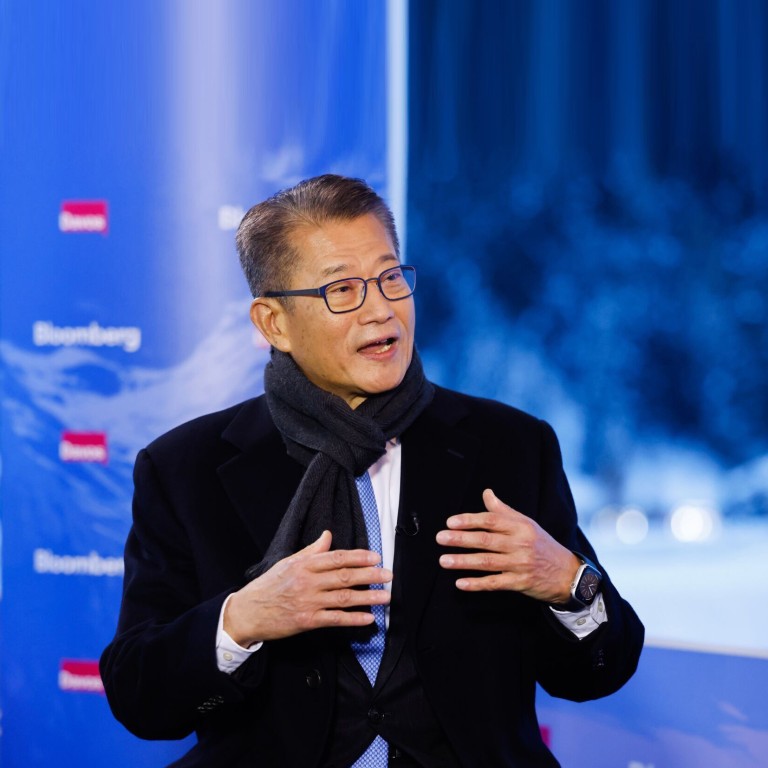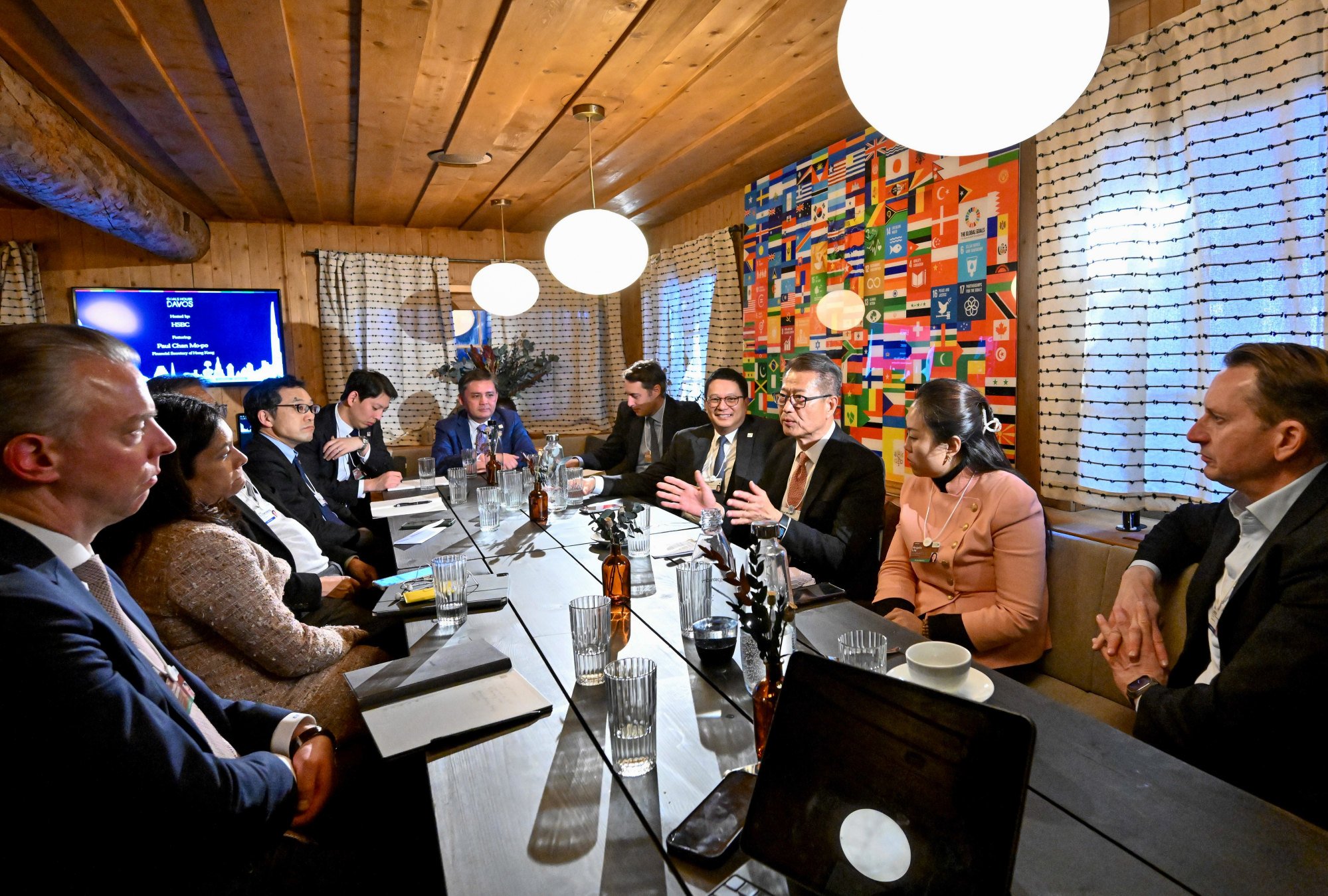
Exclusive | Leaders at Davos focused on Hong Kong business landscape not Article 23 national security law, finance chief Paul Chan says
- Financial Secretary Paul Chan says ‘overall sentiment’ expressed about Hong Kong at gathering better than last year
- Some attendees saying pass Article 23 legislation ‘as quickly as possible’ and then focus on using city as platform to capture regional opportunities, he adds
Global business and political leaders meeting Hong Kong’s finance chief during a high-profile summit in Switzerland are more concerned about the city’s economic developments than impending home-grown national security legislation, the top official has told the Post.
“Although they have some concerns about the economic development on the mainland and its consequential impact on Hong Kong … [I am taking] … this opportunity to explain to them our efforts in the past year, in terms of attracting strategic enterprises and talent to come to Hong Kong,” he said.
“They are impressed by the achievements that we have so far, and I [have also taken] … the opportunity to explain to them how we are going to further enhance the competitiveness, [and] grow our innovation and technology sector.”

Chan added the summit participants were impressed by Chinese Premier Li Qiang’s speech in Davos on Tuesday, in which he talked about the continuing opening up of mainland China and the strategies the country was taking to foster high-quality development.
“[Article 23] has been mentioned, but not very frequently. And they understand this is a legislation that we have to pass,” Chan said.
“Some of them have the view that perhaps get this legislation passed as quickly as possible and then let’s move on and focus on doing business and how to use Hong Kong as a platform to capture the opportunities in mainland and Asia.”
Article 23 requires Hong Kong to enact its own laws to penalise acts of treason, secession, sedition and subversion against the central government. It must also target theft of state secrets and the influence of foreign political groups in local affairs.
Hong Kong finance chief rules out capital gains tax for ‘foreseeable future’
Chan stressed that his discussion with leaders at Davos remained focused on business opportunities.
“Still there are quite a number of them who haven’t been to Hong Kong for quite some time,” he said. “So they are keen to find out more … and we are going to have a number of mega events this year. I invite them to come to see for themselves, because seeing is believing.”
He was also meeting companies, including tech unicorns, which he invited to set up shop in Hong Kong, the minister added.
Hong Kong, Saudi Arabia eye deeper cooperation, Arab expansion into Asia
Chan spent his third day in Davos meeting with a number of financial and economic officials from the Middle East and Central Asia, including Bahrain’s Minister of Finance and National Economy Shaikh Salman bin Khalifa Al Khalifa, and Minister of Industry and Commerce Abdulla Adel Fakhro, as well as ministers from Qatar and Kazakhstan.
During the bilateral meetings on Wednesday, Chan welcomed them to make use of Hong Kong’s “highly efficient and robust” financial markets to facilitate the development, promotion and financing of enterprises and projects on economic diversification and green transformation.
The finance chief also met Italy’s Minister of Economy and Finance Giancarlo Giorgetti and Peru’s Governor of the Central Reserve Bank Julio Velarde Flores, where they exchanged views on the global financial environment, geopolitics and green transformation, according to a government press release.
‘Hong Kong is an ideal option for foreign investment despite market pressures’
Chan gave a keynote speech at a lunch, saying that the mainland remained open to the world and that its steadily growing economy would continue to create a strong momentum for the development of the world economy.
“With the unique advantages of ‘one country, two systems’, Hong Kong is striving to enhance its position as an international financial centre, fast-tracking the development of the international innovation and technology hub, and play the role of a bridge between the mainland and the world so as to forge win-win cooperation,” he said.
Chan also took part in the China Night of the World Economic Forum’s annual meeting and delivered a speech at the dinner to explain how Hong Kong had utilised its role as a connector, bridge and gateway to assist in the economic development of the mainland and Asia.
Earlier, Chan spent his first two days meeting representatives of tech companies and attended a breakfast and round-table meetings organised by a multinational bank.

